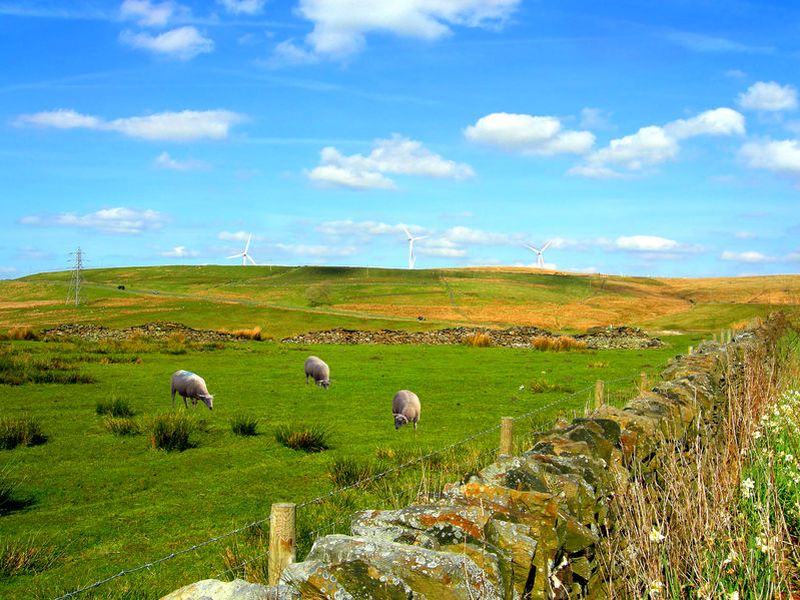
The NFU is urging the government to provide 'effective incentives' to help the sector reach net zero emissions by 2040.
British farmers are aiming to reach net zero across England and Wales in just over 20 years time as a contribution to a new target of 2050 for the whole of the UK.
It comes as the Committee on Climate Change publishes its report calling for the UK to drastically reduce its greenhouse gas emissions.
The recommendations, released in May, aim to slash emissions by 80 percent what they were in 1990.
But major changes are needed to meet the new target, the committee's report says.
These include a supply of low-carbon electricity, the introduction of electric vehicles, stopping biodegradable waste going to landfill, increasing tree planting and measures to reduce emissions on farms.
Speaking at a farming and climate change conference hosted by the NFU and Sustainable Food Trust later today (5 July), the union will say farmers are 'tackling the climate challenge head on'.
The NFU will be joined by industry leaders, scientists and policy-makers to explore what changes are needed to deliver climate-friendly food for all.
Speakers include broadcaster and author Jonathan Dimbleby, deputy Labour leader Tom Watson, Extinction Rebellion co-founder Gail Bradbrook and Natural England chair Tony Juniper.
'Greatest and most compelling challenge'
NFU President Minette Batters will emphasise that 'every farmer has a role to play' in contributing towards the industry’s net zero aspiration.
She will also urge government to provide more measures to help farmers reach this target by 2040.
Mrs Batters will say: “Climate change is the greatest and most compelling challenge facing society today and each and every one of us has a part to play to mitigate the climate threat.
“For farmers, this means tackling the climate challenge head on – adapting the way we produce food to help deliver a greener planet for us all.
“The British farming industry is pushing itself to become net zero by 2040. This does not need to impact net farm income, and certainly doesn’t mean downsizing production or exporting our production abroad.
“Instead we need to implement a portfolio of methods to improve our production efficiency, capture more carbon on farmland and boost our production of bioenergy and land-based renewables.
“Effective incentives are going to be vital in each of these areas,” she will say.
'Climate-friendly food production'
In Britain, 65% of farmland is best suited to grazing animals. Farmers' ambitions are that the climate impact of UK grazing is amongst the lowest in the world.
Research from the UN’s Food and Agriculture Organisation shows that beef production in Western Europe is 2.5 times more carbon-efficient than the global average.
At the same time, UK farmland conserves important carbon stocks in England’s uplands.
As both a sink and a source of greenhouse gasses, UK agriculture is 'uniquely placed' to be a 'key part' of the solution to the climate challenge, the NFU says.
Mrs Batters will say: “Our unique landscape and diverse farming systems enable us to produce food efficiently and sustainably, and we have been very clear in our ambition to build on this further and lead the way in climate-friendly food production.
“Our journey towards climate neutrality must be made together. If we work together, learn from each other and share our ideas I truly believe we can reach our net zero aspiration, and show the world that it can be done.”
